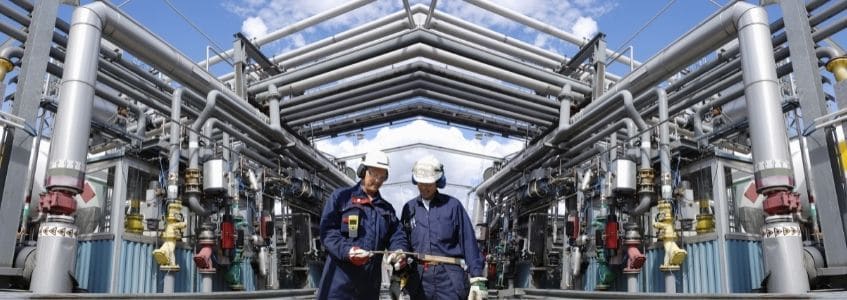Canadian Pipelines are an invaluable part of the country's energy infrastructure, serving as the backbone of transportation for oil, natural gas, and other vital resources. These pipelines traverse vast distances, connecting production areas to refineries, storage facilities, and distribution networks.
With such a vital role in the energy sector, ensuring the safety of pipelines is of great importance. Robust regulations are in place to safeguard the well-being of workers, protect communities along pipeline routes, and preserve the environment. They serve as a framework to prevent accidents, mitigate risks, and maintain the integrity of pipelines throughout their lifecycle. These regulations encompass various aspects of pipeline operations, including construction, maintenance, inspection, emergency response, and environmental protection.
Canada’s Regulatory Landscape
Pipeline safety in Canada is overseen by various regulatory bodies at the federal and provincial levels. These organizations set and enforce safety standards to ensure the integrity and reliability of the country's pipeline infrastructure.
National Energy Board
One of the key regulatory bodies is the National Energy Board (NEB), which is responsible for regulating interprovincial and international pipelines. The NEB oversees the construction, operation, and maintenance of these pipelines, ensuring compliance with safety regulations, environmental protection measures, and public safety requirements. The NEB also conducts inspections, audits, and investigations to monitor and enforce pipeline safety across its
jurisdiction.
Province Regulations
At the provincial level, each province has its own regulatory agency responsible for overseeing pipeline safety within its borders. These agencies work in collaboration with the NEB to enforce safety regulations and address specific regional considerations. Examples include the British Columbia Oil and Gas Commission, the Alberta Energy Regulator, and the Saskatchewan Ministry of Energy and Resources.
These provincial regulatory agencies have jurisdiction over interprovincial pipelines and work closely with industry stakeholders to ensure compliance with safety standards. They conduct inspections, review proposed pipeline projects, and monitor ongoing operations to prevent incidents and protect the environment.
Federal Department Regulations
In addition to the NEB and provincial regulatory agencies, other federal departments and agencies, such as Transport Canada and Environment and Climate Change Canada, also play important roles in pipeline safety. They contribute to the development of regulations, perform risk assessments, and provide expertise on related matters.
Learn more about Global Industrial Safety Compliance
Safe Operation Protocols
There are stringent regulations in place to govern the day-to-day operation of pipelines in Canada. These operational safety guidelines are essential to prevent accidents, maintain the integrity of pipelines, and ensure ongoing safety.
Safety Inspections and Maintenance Protocols
One of the key aspects of operational safety is regular inspection and maintenance. Pipeline operators must adhere to strict schedules for inspecting pipelines, identifying any potential issues, and performing necessary repairs or replacements. Inspections can include visual assessments, inline inspection tools, and other advanced techniques to detect corrosion, cracks, or other forms of deterioration that may compromise the pipeline's integrity.
Leak Detection and Emergency Response Protocols
To enhance operational safety, protocols for leak detection and emergency response are also in place. Pipeline operators are required to install state-of-the-art leak detection systems to promptly identify and respond to any sign of a potential leak. These systems employ various technologies, such as pressure monitoring, flow analysis, and aerial surveillance, to detect leaks quickly and accurately.
These regulations encompass spill response plans, environmental impact assessments, and measures to safeguard wildlife. Pipeline operators are obligated to create and uphold spill response plans, which outline protocols for containing and cleaning up spills in a timely and efficient manner. These plans also address potential impacts on water bodies, soil, and delicate ecosystems, ensuring that necessary measures are in place to protect the environment during pipeline operations.
Emergency response plans are a necessary component of operational safety. Pipeline operators must have comprehensive emergency procedures in place to address potential incidents effectively. These plans outline the steps to be taken in the event of a leak, rupture, or any other emergency situation. They include protocols for notifying appropriate authorities, coordinating response efforts, and implementing measures to mitigate the impact on workers, communities, and the environment.
Communication and Community Outreach Protocols
Regular communication and collaboration with stakeholders, including nearby communities and local authorities, are integral to operational safety. Pipeline operators engage in proactive outreach initiatives to keep communities informed about the presence of pipelines, safety measures, and emergency response procedures. This fosters transparency, trust, and cooperation among all parties involved.
Safety Programs and Safety Training Protocols
Moreover, ongoing training programs and safety awareness campaigns are conducted to ensure that pipeline employees are equipped with the knowledge and skills necessary to operate pipelines safely. These programs cover topics such as hazard identification, safe work practices, and proper handling of equipment and materials.
Creating and implementing the right safety programs for your unique business can be cumbersome and time-consuming. It is a full-time job to keep programs up to date and ensure that all staff have completed the necessary training. Working with a safety compliance specialist can be a time-saver as well as a cost-saver in the long run. Learn more with Industrial Compliance & Safety.
Canada Pipeline Worker Safety Standards
Pipeline worker safety standards related to PPE usage, training, and certification requirements, pipeline operators prioritize the safety of Canada’s industrial workforce. These measures help reduce the risk of injuries, promote a culture of safety, and ensure that workers are equipped to handle the challenges of their roles.
Personal Protective Equipment (PPE)
Regulations concerning the use of Personal Protective Equipment (PPE) by pipeline workers are in place to ensure their safety while performing their tasks. PPE includes items such as helmets, gloves, safety glasses, high-visibility clothing, respiratory protection, and steel-toed boots. Pipeline operators are required to provide appropriate PPE to workers based on the specific hazards associated with their tasks.
Jobsite Training and Certification
Pipeline workers are subject to specific training requirements designed to equip them with the necessary skills and knowledge to perform their duties safely. Training programs cover a range of topics, including hazard identification, emergency response procedures, safe work practices, and the proper use of equipment. Certifications are also often required to maintain a skilled and knowledgeable workforce. These certifications may vary depending on the nature of the work being conducted.
Certifications typically require a combination of classroom education, practical experience, and successful completion of examinations. Regular recertification may be necessary to ensure workers stay up-to-date with evolving industry standards and best practices.
Improve Pipeline Jobsite Safety with Industrial Compliance & Safety
Operational safety guidelines in the pipeline industry ensure the ongoing safety of workers, communities, and the environment. Through strict adherence to regulations governing day-to-day operations, pipeline operators can prevent accidents during routine tasks, maintain the integrity of pipelines, and mitigate potential risks. However, the responsibility for maintaining and improving safety standards does not rest solely with pipeline operators. Pipeline safety responsibility is shared by pipeline operators, and stakeholders, including regulatory bodies, nearby communities, and the general public.
Support with ongoing training and certification programs for pipeline workers will help to ensure a skilled and knowledgeable workforce. Industrial Compliance & Safety has provided support for industrial contractors across the globe for over 20 years. We have experience with every safety certification and regulation in a vast array of industries. Work with us and our team of global safety specialists to keep your growing business safety compliant. Contact us today to learn more about working with a dedicated safety team.
Ready To Get Compliant Today?
Call us or complete the form below!





